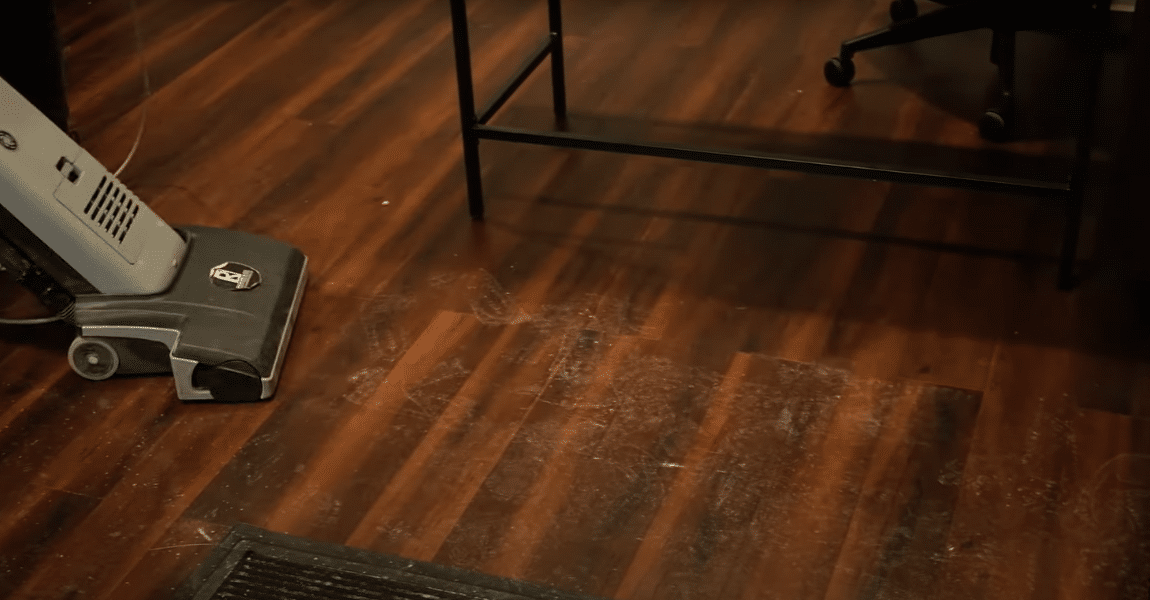Are you struggling with salt buildup on your hardwood floors? Salt can leave unsightly stains and damage your floors over time if not properly removed. But don’t worry, with a little bit of elbow grease and the right techniques, you can easily get rid of salt buildup and restore the natural beauty of your hardwood floors.
In this article, you’ll learn about the causes of salt buildup on hardwood floors, how to prepare your floors for salt removal, and the best natural and commercial cleaning solutions to tackle stubborn salt stains.
You’ll also discover some tips and tricks for preventing future salt buildup on your hardwood floors, so you can keep them looking their best for years to come.
Let’s get started!
Understanding the Causes of Salt Buildup on Hardwood Floors
You’re probably wondering why there’s so much salt buildup on your beautiful hardwood floors, but don’t worry, it’s likely due to the winter weather causing salt to be tracked in on your boots and shoes.
Salt is often used to melt ice on sidewalks and roads, and as a result, it gets stuck to the bottom of your footwear. When you enter your home, the salt gets transferred from your shoes to your floors, causing damage over time.
Preventing damage to your hardwood floors is essential, which is why it’s important to understand the causes of salt buildup. Regular maintenance is key to keeping your floors looking great.
Sweeping or vacuuming your floors regularly can help remove any salt buildup that may be present. Additionally, placing mats or rugs near the entryways of your home can help reduce the amount of salt that gets tracked in.
If you don’t take the necessary steps to prevent salt buildup on your hardwood floors, it can cause irreversible damage. The salt can seep into the wood grain, causing it to dry out and eventually crack. This can lead to expensive repairs or even replacement of your hardwood floors.
By understanding the causes of salt buildup and taking regular maintenance steps, you can prevent damage and keep your floors looking beautiful for years to come.
Preparing Your Floors for Salt Removal
First things first, take a quick scan of your hardwood floors and identify any potential obstacles or debris that could hinder the salt removal process. You don’t want to accidentally scratch your floors or smear salt around while you’re trying to clean it up.
Once you’ve identified any obstacles, take protective measures to protect your floors. This could mean laying down towels or using furniture sliders to protect your floors from scratches.
Next, gather your cleaning tools. You’ll need a bucket of warm water, a microfiber mop or cloth, and a cleaning solution that’s safe for hardwood floors. Avoid using harsh chemicals or vinegar, as these can damage your floors. Instead, opt for a gentle cleaning solution that’s pH-neutral and specifically formulated for hardwood floors.
Dampen your mop or cloth in the cleaning solution and wring out any excess water. Gently scrub the affected area, being careful not to scrub too hard or apply too much pressure.
Once you’ve cleaned the salt off your floors, rinse your mop or cloth in clean water and wring out any excess water before using it to wipe down the area again. With these simple steps, you can effectively remove salt buildup from your hardwood floors without causing any damage.
Using Natural Cleaning Solutions to Remove Salt
To effectively clean your floors without causing any damage, try using natural cleaning solutions that are gentle yet powerful. DIY remedies made from household items like vinegar, lemon juice, and baking soda are great options. These solutions are not only affordable, but they also have additional benefits such as being environmentally friendly and non-toxic.
For a simple solution, mix equal parts of white vinegar and water in a spray bottle. Spray the mixture onto the affected area and let it sit for a few minutes before wiping it away with a damp cloth. Vinegar is a natural disinfectant and can help remove any bacteria or germs that may have accumulated on the floors due to salt exposure.
Another natural cleaning solution is a mixture of lemon juice and water. The acidity in lemon juice can help break down the salt residue on the floors, leaving them looking clean and shiny. Mix 1/4 cup of lemon juice with 1 gallon of warm water and use a mop or cloth to clean the floors. The added bonus is that your home will smell fresh and clean after using lemon juice as a cleaning agent.
Applying Commercial Cleaning Products for Stubborn Salt Stains
If you’re struggling to remove stubborn salt stains from your beautiful hardwood floors, don’t worry – there are commercial cleaning products available that can help you tackle the problem with ease.
When choosing effective cleaners, make sure to read the labels carefully and select a product that is specifically designed for use on hardwood flooring. Avoid using harsh chemicals or abrasive cleaners that can damage the finish of your floors.
Once you have selected a suitable cleaning product, it’s important to take safety precautions before beginning the cleaning process. Always wear gloves and protective eyewear to avoid skin irritation or eye damage. Make sure the room is well-ventilated and keep pets and children away from the area until the floors have fully dried.
To apply the cleaning product, follow the instructions on the label and use a soft mop or cloth to gently scrub the salt stains. Avoid using excessive water, as this can cause your hardwood floors to warp or buckle.
Once you have successfully removed the salt stains, rinse the floors thoroughly with clean water and dry them with a soft towel or mop. With the right cleaning products and safety precautions, you can easily remove stubborn salt stains from your hardwood floors and keep them looking beautiful for years to come.
Preventing Future Salt Buildup on Your Hardwood Floors
To keep your beautiful hardwood floors looking pristine and free from damage caused by salt, it’s essential that you take preventative measures now. Regular maintenance is key to keeping salt buildup from becoming a problem.
This means sweeping or vacuuming your floors daily to remove any dirt or debris that could potentially trap salt and cause damage. Another way to prevent future salt buildup on your hardwood floors is to invest in floor protectors. These small, adhesive pads can be placed on the bottom of furniture legs, preventing scratches and scuffs on your hardwood floors.
Additionally, they can help to prevent salt from being ground into your floors, protecting them from damage over time. By taking these preventative measures, you can ensure that your hardwood floors remain beautiful and free from damage caused by salt buildup.
Regular maintenance and the use of floor protectors are simple and effective ways to keep your floors looking their best for years to come.
Frequently Asked Questions
Can salt buildup on hardwood floors cause any long-term damage?
Salt buildup on hardwood floors can cause long-term damage, including discoloration, scratches, and weakened wood. Prevention techniques, such as using rugs and regular cleaning, are crucial to avoid the effects of salt on hardwood floors.
Can using vinegar to remove salt stains damage the hardwood floors?
Using vinegar to remove salt stains on hardwood floors can potentially damage the finish and the wood if not diluted properly. Always test a small area first and use a gentle cleaning solution to avoid any harm.
How often should you clean your hardwood floors to prevent salt buildup?
To prevent salt buildup on hardwood floors, clean them frequently using the best cleaning techniques. Depending on foot traffic, aim to sweep or vacuum at least once a week and mop every few weeks using a gentle cleaning solution.
Is there a specific type of mop or cleaning tool that is best for removing salt from hardwood floors?
To remove salt from hardwood floors, consider using a mop with microfiber or sponge material to absorb the salt. Mix a cleaning solution of warm water and vinegar, or a commercial hardwood floor cleaner, and avoid using excessive water.
Are there any alternative methods for preventing salt buildup on hardwood floors besides regular cleaning?
To prevent salt buildup on hardwood floors, there are several preventive measures you can take. Use doormats, wipe shoes, and limit salt use. DIY solutions include vinegar and water mixtures or waxing floors to create a protective layer.
Conclusion
Congratulations! You’ve successfully removed the salt buildup from your hardwood floors.
Now, it’s time to ensure that this never happens again. Preventing future salt buildup is essential in maintaining the beauty and longevity of your floors.
One way to prevent salt buildup is by placing mats or rugs at entryways to trap salt and other debris from shoes. Additionally, regularly sweeping and mopping your floors will help to remove any salt residue before it becomes a problem. Finally, make sure to use a hardwood floor cleaner that’s specifically designed for your floors to avoid any damage.
By following these preventative measures, you can maintain the natural beauty and durability of your hardwood floors for years to come.
Remember, prevention is key, so take the necessary steps to protect your floors and keep them looking their best.


